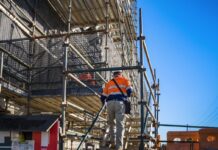
Rooftop solar systems have been installed at 22 courthouses across metropolitan and regional NSW.
Attorney General Mark Speakman announced that the NSW Government invested $4.1 million for the first stage of the Rooftop Solar Program and related work to make courthouses more energy efficient and reduce greenhouse gas emissions.
Attorney General Speakman stated that solar panels and smart metering systems would be installed as part of the sustainability renovations to maximise energy efficiency and reduce environmental impact.
“Investing in renewable energy technologies substantially saves on running costs and substantially contributes to a cleaner environment. The completed first stage of the courthouse solar program will generate up to 2,403 megawatts of electricity every year, which is equivalent to the average power use of 442 residential homes,” Attorney General Speakman said.
According to the Attorney General, the stage of the initiative will save over $460,000 in operating costs in the first year and more than $6.8 million over a 10-year period. He added that the annual CO2 offset of 1,899 tonnes, equivalent to planting more than 28,117 trees, is also noteworthy in terms of environmental savings.
Stage 2 of the State Government’s courthouse solar project will see additional modifications such as energy-saving LED lighting and motion sensors installed in non-court spaces such as conference rooms and bathrooms.
During a visit to the Tweed Heads Courthouse with Member for Tweed Geoff Provest, Attorney General Speakman announced that the first phase of the state-wide courthouse solar initiative had been completed.
Provest welcomed the recent completion of major repairs totalling over $780,000 at Tweed Courthouse, which included replacing the courthouse roof and installing a rooftop solar system.
“I am also pleased that Tweed Heads was also one of 45 courthouses across the state to benefit from a $9 million package for new and upgraded safe spaces and modern facilities to help empower domestic and sexual violence survivors and vulnerable witnesses to give their best evidence in court,” Provest said.




















